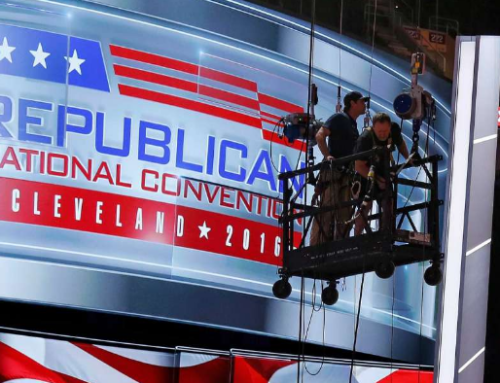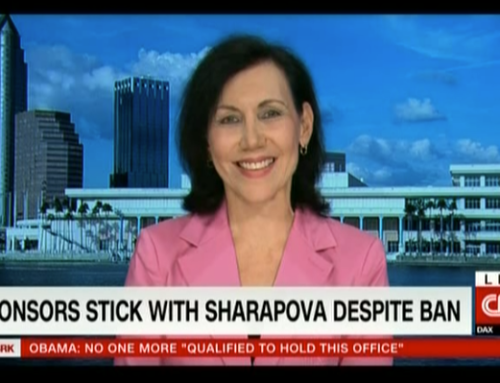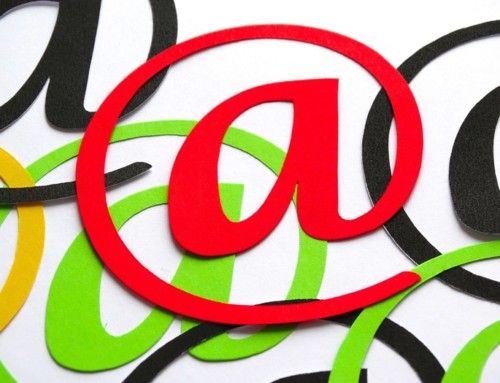She’s flown hundreds of thousands of miles, met hundreds of hundreds of people via market research exercises, and reads numerous newspapers electronically in a given week. In fact, we caught Marian for this interview on a Sunday morning after she’d just been through Las Vegas, Los Angeles, London, and Barcelona.
At the time of the interview her baggage was lost. Probably in Iberia.
1. Did you consciously set out to become the market economy answer to Nostradamus or did it slowly develop along the way?
If only I was Nostradamus I’d be able to figure out the winning lottery ticket and would call it a day, giving most of my take to environmental charities once I had myself well launched in an ideas tank someplace in the Caribbean, or maybe near Savannah. In all seriousness, my aptitude for predictions has increased as I have grown older, which is ironic since we typically think trend-spotting is the domain of youth. But, since my emphasis is on social shifts, and marketing opportunities which develop thanks to unseen consumer need, middle age is a good thing. I have seen more, noted what happens, formed a better world view, and become more highly tuned into the geo-political shifts which seem to scream risk or opportunity. Also having traveled considerably and seen, touched and been places like Chindia, and the Middle East, and South Africa in the late 1990s, where the changes are most dramatic, has helped reshape my sensors for what will matter and how manifestations might impact consumption.
If there was one defining moment for me, it was moving to Amsterdam in the mid-1990s. There I experienced for a second round the beginning of Internet mania, and also lived first-hand the implications of a unified Europe and the arrival of the euro. Because I was a super proficient sender of instant messages, I found myself a phenomenon in Holland: the Internet girl. Who knew that chatting via AOL with people clustered behind me watching a computer ping could make a strategic planner a celebrity? That’s what led to the publication of Next, a book I co-authored for publication in Dutch (first) in 1997. That was really the public beginning of my life as a trendpicker on the global stage.
The private beginning was a few years sooner, over wiggers; that was very American, and that round was packaged as the exception, versus a new entry into a field dominated by Alvin Toffler, John Naisbitt, and Faith Popcorn. Then, and now, I still am different, since my formal occupation is marketer versus trends analyst.
Back to plans, and whether I set out to be a forecaster of anything. Nope. Never. Couldn’t have considered it since I wasn’t trendy, just on the fringes of the popular crowd, and marginally in the know, but always too exhausted working to think beyond coffee the next morning.
2. Of client-agency loyalty you recently said, “In the same way I believe that consumers have become brand sluts chasing whatever is new or priced best I think clients are feeling that same promiscuous urge. They crave new and they don’t even know why.” (ADWEEK) Do you think this is an all-encompassing trend (e.g marriages, jobs,)?
Loyalty died. Dead and buried, and I can’t exactly pinpoint when it happened, but maybe when we accepted a divorced president as the keeper of the American conservative flame? Or maybe when we saw the old Ma Bell break up and re-partner? Or could it be the scandal surrounding the Catholic Church swirled into the public domain, alongside Enron and the other big biz crimes that seem to define the new danger zone? You can’t trust anything forever or even right now. Truthiness is the theme of the day and why be honorable in the face of truth lite?
Today, promiscuity is very normal; maybe it’s not about two simultaneous love affairs (with brands or other people) but it’s definitely wise to keep looking at all times. In fact, to be married to one person for an adult lifetime may be the ideal but it’s highly unlikely, given the rate of change in our everyday lives. I have become somewhat cynical about institutions that heretofore worked pretty well. We don’t really have the skills or know how to partner for life, or pick our life’s work, since everything is changing at unprecedented speed. Maybe in 2007 what will be normal is to be a serial monogamist, to have a starter marriage, then a marriage for first family, then a singleton period of self-actualization, then a marriage for a second family, and then an old-age friendship coupling for companionship.
And who expects anyone to stay on a job for more than three or four years? In fact, the unspoken truth in the corporate world may be that moving on every several years is essential to nurture and protect your personal brand, which is the brand you need for life. Everyone knows we need to rotate our shampoos; maybe we need to rotate our love partners and our employers too. It starts to paint a pattern.
Loyalty is very 1957. How oh so 50 years ago.
3. Your book Next Now speaks about how China and India (Chindia) are poised to turn the U.S. old world. If I were a student and could study one of these languages and cultures, which would you recommend? Why?
Mandarin first, for sure, because China is big, very big; you can navigate India with English, but China requires familiarity with its main language. I had lunch yesterday with a friend whose son is entering University and I said, without missing a beat, “I hope he’s planning a junior year in New Delhi.” He looked at me and said, “Are you serious?” I said, “Absolutely.” In my mind, China and India are the future and if I had a six year old, I would ensure she learned Chinese throughout her primary and secondary school years, did summer study in the Mandarin tongue, and then spent at least one year overseas, studying at an Indian management course. It gets so prescriptive that it gives me a pit in the stomach: Just because such a course is the smart course, maybe for some learning poetry is better? Being a futurist doesn’t mean you know the right answer, you hope it means you can predict the correct pattern.
4. You are credited with popularizing the term wigger. Having really been at the bleeding razor’s edge of this phenomenon in rural Wisconsin I was the OG wigger and didn’t even know it. (Those early years were rough for wiggers too.) I don’t really have a question here. Any thoughts on whether or not this term is relevant anymore?
What’s relevant and terrific is that African-American culture and multicultural artists, celebrities, and leaders have been mainstreamed in the last 15+ years. Back when I found the wigger concept in Scott County, Kentucky, Covington to be exact, while conducting consumer research, I had no idea that this teenage concept was a precursor of what would shape pop culture in the Western World. What was meaningful when I heard about wigger was not the word but the respect that was the underpinning, rather the envy: I want to be like that guy who has a strong peer resource, who is natural styled, and who has a sense of community and family that’s missing in my everyday (read: bland, read: over-processed) life. There are countless bizarre and negative things about the word (disgusting!) but it wasn’t an insult but an accolade when I first heard it used. It was one of those words which can only spring from the culture and be discovered; I sincerely doubt it could have been wordsmithed by Hollywood or Madison Avenue, since it lacked all cute. It was antagonistic and gritty and conveyed a sense of what had been and what was to come. I was conflicted about the choice of vernacular then, and now.
5. I am still kinda stuck on wiggers. I can only imagine that you received some really nasty hate mail about this. What was the worst?
I recall some tough moments because a minority of people thought I had coined the term, and hated me for it. (Can you imagine if there had been bloggers back then?) And other people thought I was another establishment creep trying to rip off the inner city. Still others challenged the truth behind the insight and believed that African American culture would remain niche, and isolated. For me it was a learning experience; every time I explained the sighting I guess I got better at the storytelling of how I first heard the word in a community where there was a welcome billboard that said, “Abortion is murder,” in a high school where it felt like 20 percent of the teenage girls were pregnant. Soon after I appeared on the Today Show talking about the teen trend, I was on Oprah and it didn’t go well in my mind; she somehow made me feel like I was taking advantage of the urban community not translating a finding.
It probably made me better and tougher to experience wigger negativity since it happened again and again, soon thereafter when I defended the Calvin Klein ads labeled “teen porn” as only being pornographic through the eyes of adults. To teens it was reality and for and about adolescence.
By the time there was pushback against me for popularizing metrosexuality, I had gotten tougher, or at least more used to the criticism. But it gets exhausting to read about every which way you are exploiting or polluting society, and in today’s everything connected world, that’s inevitable.
6. In fact, you also authored The Future of Men revealing the distinct facets of modern man from interest in fashion to concern about aging to desire for emotional intimacy. How does it feel to basically know me better than I know myself?
Studying men as a marketer hardly gives me insight into every man, unless of course it’s in the generic. I started exploring the whole area of male consumerism in early 2003, maybe end of 2002, and as I learned more I clearly have become more and more sympathetic to the everyday guy and just how much he’s been impacted by the Woman’s Movement, and social shifts. It ain’t easy to be a straight white man today since political correctness means you are the last target of the dumb blonde joke. You can be skewered and we can giggle and you have no right of rebuttal. To be serious for a moment, what does worry me is that young boys aren’t being nurtured and schooled to maximize their potential; in the 1970s everyone worried about adolescent girls losing their voice but today we need to be worried that 6- and 7-year old boys are being told to stay still, be quiet, and learn, a style that’s completely counter to their developmental steps. And our schools have become enormously female, while Dads and strong male models are missing from home, from TV, and beyond. It’s a dilemma. So while I have spent a few years studying men, it didn’t make me better with them on a personal level (I wish!), but it did make me more empathetic in general, and more aware that progress doesn’t always help everyone.
7. You seem to love combining words to present larger ideas, like a thesaurus based on Venn diagrams: folklorica, (the aforementioned) wigger, ubersexual, Chindia, singletons, kidults. What’s your favorite and why?
Typically I see a word used out there, maybe in the local newspaper some place or online, and what I do is popularize it by attaching a trend-based meaning. (Let’s be honesty, typically is an overstatement; I’d say if I adopt 2-3 words a year that’s a real exaggeration.) I’m just someone who thinks about fluffing up the definitions based on my sightings and the details I cull from my routine market research.
I find words in esoteric places my advantage is global connectivity; words and concepts get fed to me from all over the world by colleagues and friend. I first heard the term metrosexual from my friend, Matt Donovan, who was then living in Sydney and who sent me a clipping about the concept from a Kiwi newspaper in spring 2003. It was at a time when I needed a word to describe the fact that American and British men seemed to be adopting some feminine traits, while still wanting to be best lover for the women in their lives. I had been working with ADWEEK to understand why male role models were MIA from mainstream television and that lead me to survey men on men, and women on men, in the two countries. My only contribution to metrosexmania was feeding details via the New York Times and the Daily Telegraph in London at a point in time when people were ready to rethink what was male; effectively my trend-spotting became a news item that rolled around the world. But the word was already out there thanks to Mark Simpson, who I consider a simply brilliant social commentator. He is the genius; I am the marketer.
As for my passion for folklorica, I first heard the word attached to the positioning of boutique chain, Anthropologie, and then used it describe my zest for shopping on novica.com, for native art from places I had been. At some point I think folklorica became about Country Living Style, which became increasingly trendy until Martha Stewart may have overdone rustic kitchen ornaments?
8. Ok, book plug time. Next Now is getting favorable reviews; but what do you think really sets your book apart from its peers?
People who like the book are the ones who understand it was meant to be a map of the right now: 2007-2010, not deeply predictive about the next two decades. What the book does well (I hope) is marry the global shifts with the pop culture shifts with the personal shifts to paint a portrait of what’s likely to be coming for those of us living modern lives. I think the book’s strength is our understanding of the polarized American scene and of the rise of Islam especially in Europe and of how personal empowerment is translating into a new social that many will consider anti-social. My co-author and I really pushed ourselves to make the book inclusive and in doing so opened ourselves up to criticism that we were superficial.
Think awesome and inspired Polaroid picture of the next two-plus years, not Picasso masterpiece, and you’ll enjoy the read.
One other thing I have to say: When you predict trends or sight them, if people know about them already you get a; if it’s new and upsetting, you get pushback. It’s hard to find someone who thinks you have achieved just the right balance of reporting and provoking.
For more and to contact Marian please visit www.mariansalzman.com.





